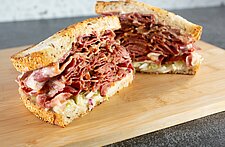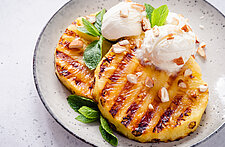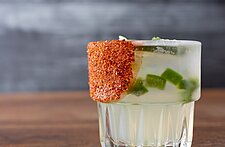With the insane popularity of flavored vodkas on the market, I wanted to pay homage to the first flavored vodka in history- gin. Though to categorize a spirit as gin, the neutral grain needs to have juniper as its primary botanical; the history, evolution and rise of micro distilleries that produce gin is fantastic!
Just to give a bit of history for all those buffs out there, the word gin is derived from either the Dutch word “jenever” or the French “genievre, both of which mean “juniper” in English. From ancient times, juniper berries were considered to have medicinal properties. Italian monks used them to add flavor to poorly-distilled liquids in the 11th Century but it was in 1650 that gin was invented in Holland by Dr. Franciscus Sylvius. Seeking to create an effective diuretic for treatment of kidney disorders, Dr. Sylvius mixed juniper berry oil with grain alcohol (neutral spirit) as both have diuretic properties. The difference with his “jenever” as he called it was that unlike most alcoholic beverages, which were made from grapes or other fruits, he used grain alcohol and the result was a good tasting liquid that was inexpensive to produce.
CLICK HERE to view Monthly Mixology: Craft Spirits
Gin is the distillation of a grain mash whose distinct flavor comes from the juniper berry although other herbs and spices are also a part of gin’s make up. There are a number of varieties of gin but it is legally split into four categories in the European Union (Juniper-Flavored Spirit Drinks, Distilled Gin, London Dry Gin and Compound Gin). In the United States two of the categories (Distilled Gin and Compound Gin) are recognized. There are other classifications of gin but these have descriptions that are either geographic in nature or culturally recognized styles.

Common botanicals used to flavor gin varies from brand to brand, however some of the most common include: juniper (of course), coriander, and citrus peels. But there is such a wide range of other botanicals that can be utilized as well: saffron, olives, cassia bark, cubeb berries, licorice, nutmeg, and cardamom. A few brands use flowers such as rose, grape flowers, lavender, and geranium. Botanicals are limited to the imaginations of the producers.
CLICK HERE to view Monthly Mixology: Trending - Shrub Cocktails
Recently, the cocktail industry is being blessed with a huge small-batch spirits boom. Now the extreme explosion of small-batch spirits has brought an immense wave of small-batch gins that are made locally and are launching the category to a pinnacle that is seriously giving whiskey a run for its money.
When creating cocktails with gin, I like to keep in mind the botanicals within the brand as the expression, “If it grows together, it goes together,” is always in my thoughts. Gin is such a diverse spirit that it can lend itself easily to refreshing cocktails with ingredients such as cucumber and lime, but has complexity that the addition of jalapeños and herbs also has appeal. Some gins that are infused with less botanicals can be used for smokey treats while the floral ones can easily be mixed with just tonic water for a simple way to cool off on a hot summer day.
G’Indian Summer
2 oz Gin (here I used G’Vine Gin which is distilled from grapes )
1/2 oz Aperol
1 oz pomegranate juice
1 oz cold green tea
1/2 oz Dainzu Gomme Syrup
Pour ingredients into a mixing glass and add ice. Shake vigorously and pour into a highball glass over fresh ice. Garnish with a slice of orange and a slice of lemon.





